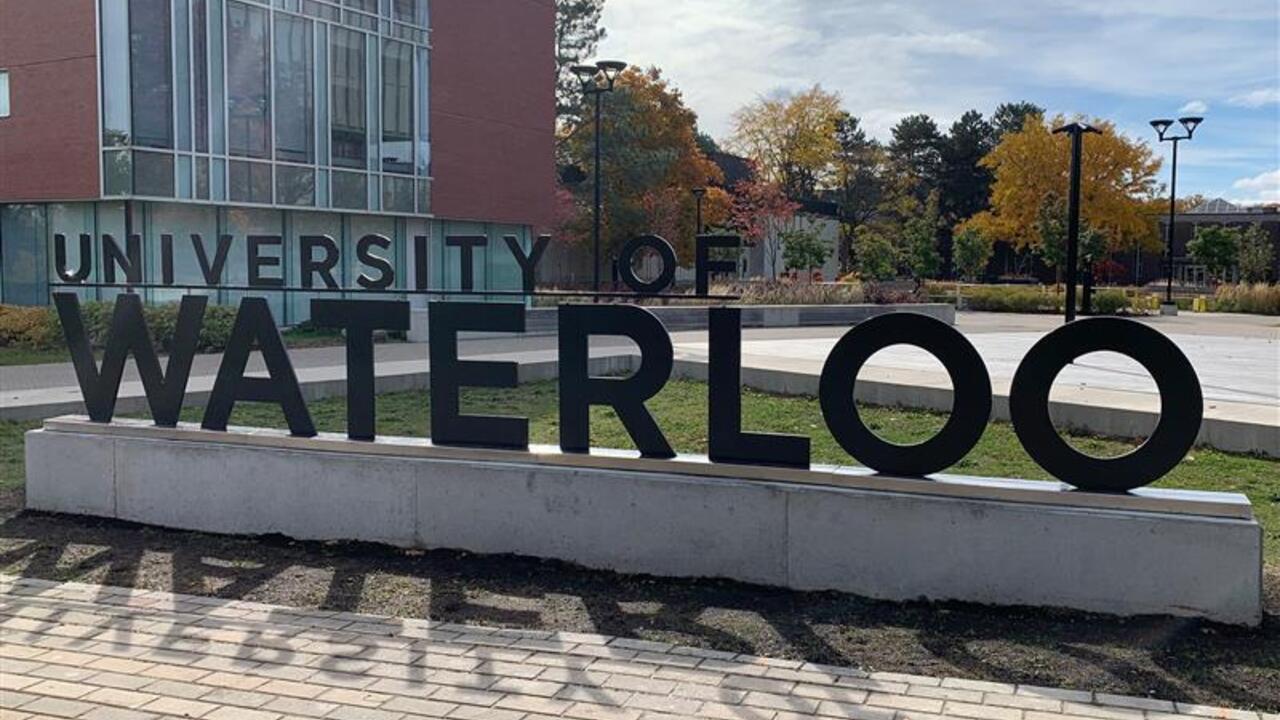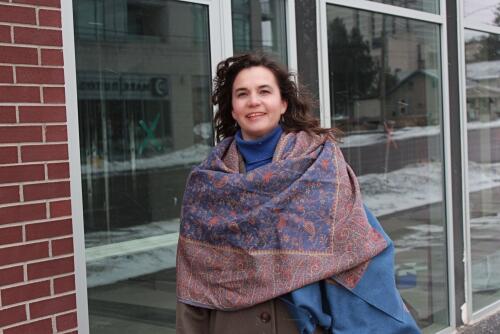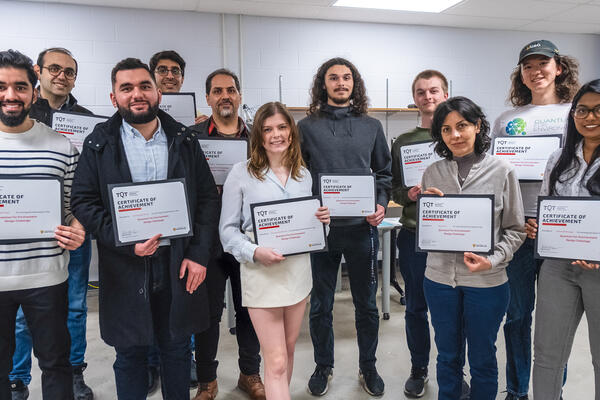
Waterloo researcher uses big data to see LRT impact on housing market
A researcher from the University of Waterloo is harnessing the power of big data to help gather new insights into transit systems.

A researcher from the University of Waterloo is harnessing the power of big data to help gather new insights into transit systems.
By Media RelationsAs the debate continues in several cities surrounding the potential impact of light rail transit (LRT), a researcher from the University of Waterloo is harnessing the power of big data to help gather new insights into how transit systems might transform urban redevelopment and affect the housing market.
Professor Dawn Parker of the Faculty of Environment at Waterloo is the lead researcher on a project that will also analyze and compare data from computerized simulation models.
While new information tools can be used to help understand complex data systems of all kinds, Parker will use them to complement her research on land use and urban redevelopment.
“Modeling key feedbacks between individuals’ housing and transportation decisions, regional economic conditions, and municipal policies and investments goes beyond traditional methods to realistically simulate the processes that affect urban core vitality,” said Professor Parker, a researcher in Waterloo’s School of Planning.
The project will provide governments, commercial organizations and the general public with intuitive web interfaces and easy-to-understand visual graphic representations to help analyze otherwise difficult-to-understand models.
Professor Parker recently received $125,000 in research funding from the Social Sciences and Humanities Research Council (SSHRC) via the Digging into Data Challenge (DiD). The international program was established to advance the use of computational methods to explore, analyze and visualize the rapidly expanding pool of crowd-sourced and remotely sensed big data from real-world systems.
“As a social scientist, I strive to understand how the intricacies of human behaviour interact to paint a more complex, but ultimately more complete, picture of how both large and small decisions combine to shape our communities," said Professor Parker. "I am excited to be undertaking research that will let us investigate a richer set of questions than was possible in the past, and appreciate SSHRC’s support for our new venture in this area.”
The advanced data modeling will also support a developing partnership between planning professors Parker, Jeff Casello, and Markus Moos, the Region of Waterloo, the cities of Kitchener and Waterloo, and the Kitchener-Waterloo Association of Realtors. The collaboration will gauge the success of the region’s rapid transit project and measure its development and economic impacts.

In just half a century, the University of Waterloo, located at the heart of Canada's technology hub, has become one of Canada's leading comprehensive universities with 35,000 full- and part-time students in undergraduate and graduate programs. Waterloo, as home to the world's largest post-secondary co-operative education program, embraces its connections to the world and encourages enterprising partnerships in learning, research and discovery. In the next decade, the university is committed to building a better future for Canada and the world by championing innovation and collaboration to create solutions relevant to the needs of today and tomorrow. For more information about Waterloo, please visit www.uwaterloo.ca.
-30-
Pamela Smyth
University of Waterloo
519-888-4777
psmyth@uwaterloo.ca
www.uwaterloo.ca/news
@uWaterloonews

Read more
First-year students hone more than their research skills by exploring what it means to be happy

Read more
12 Waterloo students and postdoctoral fellows receive up to $10,000 in funding to develop their green-tech solutions

Read more
The Future Cities Institute founded by CAIVAN will bring together leading minds from across sectors to solve the most challenging and urgent issues facing global cities.
The University of Waterloo acknowledges that much of our work takes place on the traditional territory of the Neutral, Anishinaabeg and Haudenosaunee peoples. Our main campus is situated on the Haldimand Tract, the land granted to the Six Nations that includes six miles on each side of the Grand River. Our active work toward reconciliation takes place across our campuses through research, learning, teaching, and community building, and is co-ordinated within the Office of Indigenous Relations.